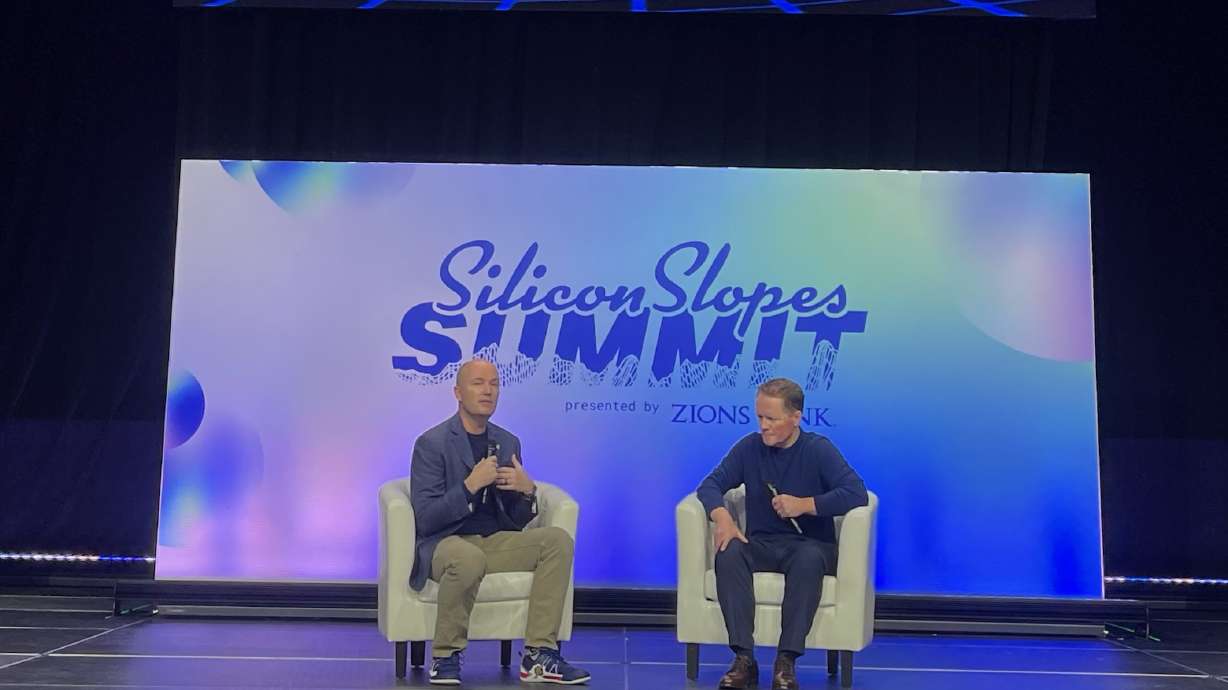Estimated read time: 4-5 minutes
- Utah Gov. Spencer Cox highlighted the tech sector's role in addressing housing and energy issues in Utah.
- Cox emphasized housing affordability as Utah's top issue, aiming for 35,000 homes in five years.
- Cox ordered streamlined permitting for infrastructure, focusing on balancing growth and environmental protection.
OREM — Like any state experiencing rapid growth, Utah has a list of demands it has to meet to ensure a prosperous future.
Luckily, Utah Gov. Spencer Cox thinks the state's vibrant technology community can help navigate some of these problems.
"The one area where we are really good at building is in the tech world. We're leading the world, still, in this space," Cox said Wednesday during the 2025 Silicon Slopes Summit. "So many great ideas are happening in the virtual world and the tech world. We're not as good as building things in the real world."
Some of these things, Cox said, are housing and energy infrastructure.
Following the June Republican primary debate for governor, Cox said his biggest regret from his first term was his inability to do more on what he says is his top issue: housing affordability.
"This is the single most important issue in our state," Cox said.
In 2023, Cox appointed Steve Waldrip as the first senior adviser for housing strategy.
This was followed by a litany of of housing bills passed in 2024 seeking to simplify regulations, subsidize homeownership and incentivize starter-home construction with the goal of building 35,000 homes in five years. However, Waldrip said the fruit of these efforts "is many years off."
"This is pure economics 101. It is supply and demand. Demand is high, supply is low (and) prices go up," Cox said. "We can either decrease demand, which is what the Fed is doing by raising interest rates, which isn't really decreasing demand ... or we can build more houses," Cox said.
He noted that one of the reason Utah's Silicon Slopes revolution happened was because Silicon Valley "became unattainable for far too many people."
To ensure future prosperity for Utah's tech ecosystem, Cox said the state needs to achieve prosperity in other areas, like housing.
Another area mentioned was energy, with Cox saying there's an energy crisis in the U.S.
He talked about the need for data centers across the country and the incredibly high amount of energy the centers demand. When a data center reached out to Utah, Cox said it would've required 1.4 gigawatts of power. Cox did not identify the data center. For some comparison, the entire state of Utah runs on 4 gigawatts of power.
"We stopped building power plants in this country in meaningful ways. We have the technology capability to do these things; we've just gotten very stupid about it. It's time we stop being dumb and actually start unleashing the potential of building in our country and in the state of Utah," Cox said.
Building — wether it's new houses, power plants or data centers — requires permits.
On Jan. 9, Cox announced an executive order requiring state environmental agencies to streamline the permitting process for infrastructure projects. It was the first executive order of his second term.
The executive order instructs the Utah Department of Environmental Quality and the Division of Oil, Gas and Mining in the Utah Department of Natural Resources to identify ways to expand permit review processes that allow projects to get started more quickly.
"The idea is, if you want to build something, you have to get government permits, you know, clean air permits, local building permits, all of those different things. How can we do that faster?" Cox said.
An example, Cox said, was if a company was seeking to build a power plant in Utah. In Cox's perfect world, Utah could grant a plant-wide permit, meaning the company wouldn't have to get a different permit for "every single piece of equipment."
"We're just trying to streamline and make things easier while still protecting the environment (and) doing the things that everybody cares about," Cox said.
At the end of the day, Cox said Utah's DNA of being giving and community-focused is what separates it from other tech hubs like Silicon Valley, and it's also why he's optimistic Utah can continue to grow and lead when it comes to sectors like tech.
"If we want Utah to stay unique, if we want Utah to stay the best place in the world to live and play and raise a family and build a business, we have to take care of each other, and we need your help in doing that," Cox told the crowd.










